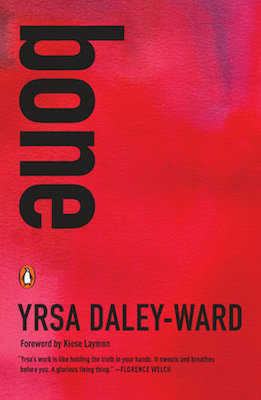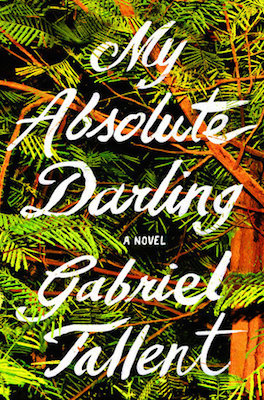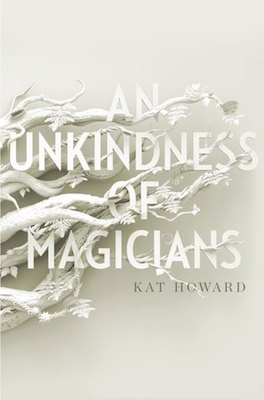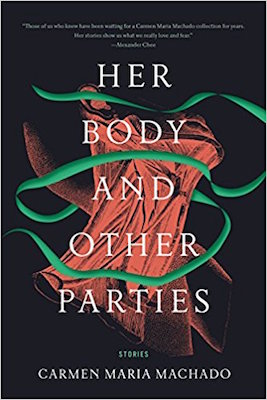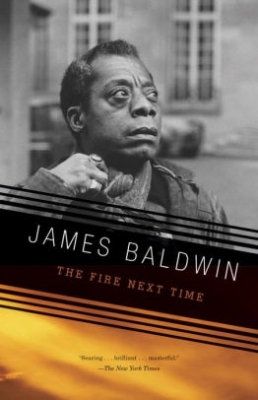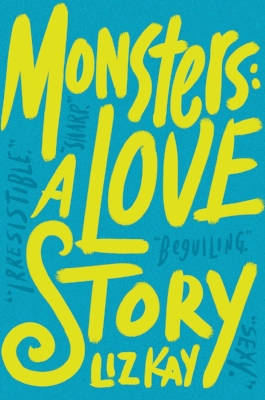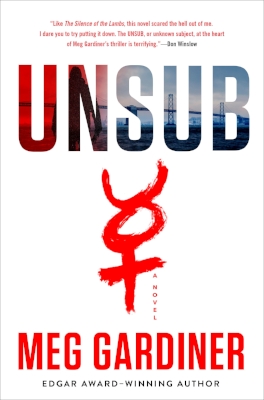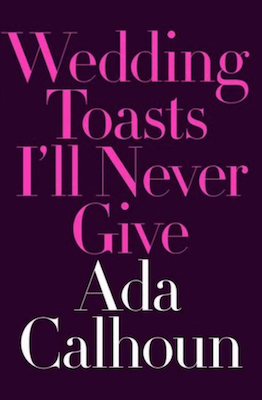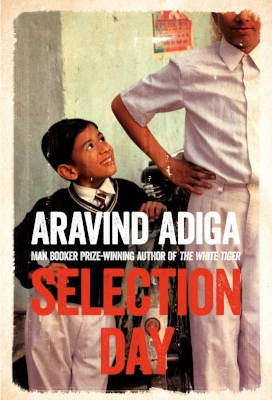Every month, the Writer’s Bone crew reviews or previews books we've read or want to read. This series may or may not also serve as a confessional for guilty pleasures and hipster novels only the brave would attempt. Feel free to share your own suggestions in the comments section or tweet us @WritersBone.
The Last Ballad by Wiley Cash
Daniel Ford: You can tell from the opening lines of The Last Ballad that Wiley Cash had this story in his bones. Based on true events, the novel tells the story of a fateful (and deadly) mill strike in Gastonia, North Carolina. Shifting between the perspectives of all those involved, Cash explores themes that are as alive today as they were in the 1910s.
On a recent podcast episode, Cash said he was chasing Ella May’s ghost the entire time he was writing the novel. That passion and research led to one of the most unforgettable and empathetic main characters you’ll read in fiction this year. If the book only focused on her, it still would have been great, but, to Cash’s credit, May’s supporting cast is just as finely drawn.
The Last Ballad is a special book, one that I think readers will fall in love with. Cash does the Southern storytelling tradition proud, and he adds even more to the remarkable fiction coming out of that region in the last couple of years.
Shallow Graves: the Hunt For the New Bedford Serial Killer by Maureen Boyle
Sean Tuohy: In the summer of 1987, a killer stalked the streets of New Bedford, Mass. He targeted young women who were addicts. He preyed on them, killed them, and left on the side of the road. In Boyle’s riveting narrative, the killer, a lurking, sinister figure, is left in the background. The author focuses on the victims, their family members, and the town itself. Boyle writes with a passion that shines in each passage, and she shares the pain of the victims.
Have You Met Nora? by Nicole Blades
Daniel: One day I’ll get to tell you my reaction to the final scenes of Nicole Blades’ cheeky and engrossing novel Have You Met Nora? Just know it made Blades “LMAO” in an email chain. Doesn’t get much better for a reader (or writer)!
We’ve come to expect great fiction out of Blades, and this novel is no exception. Have You Met Nora? (out Oct. 31) features a freight train plot and well crafted characters who deliver lines of sassy dialogue as if they were lightning strikes. Issues of identity, race, friendship, and family are all explored without beating you over the head with a blunt instrument. Blades gets bonus points for using punctuation in her title!
bone by Yrsa Daley-Ward
Daniel: I didn’t realize the recent paperback release of Yrsa Daley-Ward’s bone features 40 more pages of poetry not included in the original 2014 release until after I finished the collection in roughly one sitting. It says something about Daley-Ward’s talent that a publisher signed off on an expanded edition given today’s publishing market! What’s interesting is that none of these poems feel added on or misplaced (I can’t even imagine the process involved in narrowing them down for the first launch). The collection’s title is apt considering that each poem seems to be stripped down to only its essential components, reveling in their devastatingly honest and personal nature. There’s one section of a poem called “things it can take twenty years and a bad liver to work out” that could serve as a mission statement for most creative types:
There are parts of you
that want sadness.
Find them out. Ask them why.
Indeed.
My Absolute Darling by Gabriel Tallent
Daniel: Gabriel Tallent's debut contains gut punches for days and will make you slam it down more much often than you anticipated. However, you'll keep picking up, sucking the marrow out of Tallent's prose. Turtle Alveston is a heroine for the ages, and the author gets inside her head in a way you won't find in any other fiction. My Absolute Darling also features one of the sweetest and well-earned denouements I've ever read.
Sing, Unburied, Sing by Jesmyn Ward
Gary Almeter: I read this book immediately after Gabriel Tallent's My Absolute Darling (see above). Sing, Unburied, Sing is also about a child, in this case, 13-year-old Jojo, let down and abused by parents. Jojo is a resilient and caring young man; his wisdom beyond his years is due in large measure to the patience of his grandfather, Pop, with whom he and his 3-year-old sister Michaela live, and the fact that he is tasked with caring for Michaela whenever their mother leaves them for days at a time. Jojo's white father, Michael, is at Parchman prison, the same prison Pop spent time in decades ago.
The whole book is teeming with ghosts. Leonie's brother was murdered and haunts her whenever she gets high; the rural Mississippi setting is haunted by the oppressive and omnipresent legacy of racism; Pop had a friend at Parchman prison whose memory stays with him. Woven into these ghost stories is a road trip to Parchman to retrieve Michael upon his release. The journey becomes a nightmare as everyone learns that there are absences that can never really be filled and ghosts that can never be outrun. Jojo perseveres nonetheless.
Read Adam Vitcavage's interview with Jesmyn Ward.
Once We Were Brothers by Ronald H. Balson
Sean: Ronald Balson does not waste any time. He quickly pulls the reader into the story and allows his characters to build over the course of the story until they are almost too real. After a Holocaust survivor accuses one of the city's wealthiest men of being a Nazi, it’s up to a burned out lawyer to find the truth. Rich in history, Once We Were Brothers is a wonderful tale.
Hollywood Homicide by Kellye Garrett
Daniel: Kellye Garrett's debut novel Hollywood Homicide is such a fun read. In Dayna Anderson, Garrett has created a sassy, determined, and sometimes confused heroine that will be entertaining readers for plenty of beach "Days" to come. Every supporting character is a gem, and the plot moves along like a binge-worthy TV dramedy. Garrett's voice is a welcome breath of fresh air, and I can't wait to see what it has to say next.
Blurred Lines: Rethinking Sex, Power, and Consent on Campus by Vanessa Grigoriadis
Daniel: Vanessa Grigoriadis' distinct voice and empathetic, curious reporting are used so well throughout Blurred Lines, a book that delves into the myriad issues surrounding campus rape in the United States. Grigoriadis tackles everything from "Mattress Girl" to Rolling Stone's errant reporting during the University of Virginia rape controversy and the new age of consent to Donald Trump. The author/journalist interviewed hundreds of people, including students, parents, administrators, lawyers, and advocates, and that dogged reporting led to an even-tempered (though not unemotional) narrative our polarized electorate desperately needs.
One of the most refreshing things about Grigoriadis' work here is her ability to include comments, research, observations, and facts that questioned her beliefs or hypotheses. She didn’t pretend to have all the answers or discard information because it didn’t fit into a concrete mold she decided on long before writing the book. Journalism like this is of the utmost importance because of our current political climate. Read this book and recommend it to others.
An Unkindness of Magicians by Kat Howard
Daniel: There’s a reason Kat Howard is one of our favorite authors (check out her “Author’s Corner” below). She delivers opening lines like the ones found in her new novel An Unkindness of Magicians.
The young woman cut through the crowded New York sidewalk like a knife. Tall in her red-soled stilettos, black clothing, that clung to her like smoke, red-tipped black hair sharp and angular around her face. She looked like the kind of woman people would stop for, stare at, notice.
None of them did.
Yeah, we can get down with that. What we’ve read so far of An Unkindness of Magicians proves why Howard has amassed the following she has. This fantasy thriller, which features competing magicians fighting to preserve (or maybe it’s to demolish) the magical system that binds the world, is the perfect read headed into the Halloween season.
Dreamfield by Ethan Bryan
Daniel: I found myself grinning ear-to-ear reading fellow 50/50 Press author Ethan Bryan's debut novel. I think Sid Sanford and his main character “Ethan” would get along just fine. Ethan finds himself transported back to high school, where he has a chance to relive his dream of being a star baseball player (yes, Bryan made me an offer I couldn’t refuse). Part “Field of Dreams,” part “The Rookie,” Dreamfield is a fun meditation on time, religion, family, and baseball.
Uncommon Type: Some Stories by Tom Hanks
Daniel: There is officially no limit to Tom Hanks’ talent. In his debut short story collection (out Oct. 17), the actor brings all of the traits that define him on the silver screen: honesty, irreverence, humor, and unending empathy and passion. Be warned, this is absolutely one of those collections that will cause you to stay up way past your bedtime and mutter, “Okay, just one more.” If these are the types of stories we can expect from Hanks and his typewriter in the future, we’re all very lucky readers.
Author’s Corner
By Kat Howard, author of An Unkindness of Magicians
Good Bones by Maggie Smith
I try to always have one book of poetry that I’m reading. This is the sort of collection that I’ll turn to again and again. Smith’s writing is clear-eyed, precise, and full of beauty. It gives me hope.
From the Dust Returned by Ray Bradbury
One of my very favorite books, and a quintessential October novel. Haunted and full of melancholy, it is also gorgeously written. I mean, it’s Bradbury.
All Our Pretty Songs by Sarah McCarry
The first of the completed Metamorphoses trilogy, it’s myth and Seattle and brilliant and a book I’ve reread at least once a year since it came out.
From the To Be Read pile:
Ask Baba Yaga: Otherworldly Advice for Everyday Troubles by Taisia Kitaiskaia
Okay, so maybe Baba Yaga doesn’t spring immediately to mind as the sort of person you’d go to for life advice. But I loved this column when it ran on The Hairpin, and I’m really looking forward to picking this up.
Tales of Falling and Flying by Ben Loory
Ben’s first collection, Stories for the Nighttime and Some for the Day, was a book I absolutely adored. He writes strange tiny gems of things, and I can’t wait to see what he’s done here.
Her Body & Other Parties by Carmen Maria Machado
Okay, no one needs me to tell you to read this collection, because it is winning all the awards, getting rave reviews, and is one of the most buzzed about books of the year. If you’ve ever read Machado’s writing, you know the praise is deserved. If not, you are in for a treat.
#NovelClass
Dave Pezza and Daniel Ford discuss Tom Perrotta’s Mrs. Fletcher.
Learn more about the #NovelClass series.




